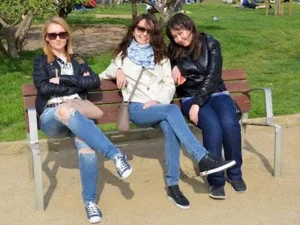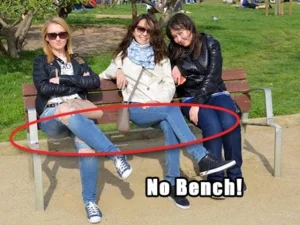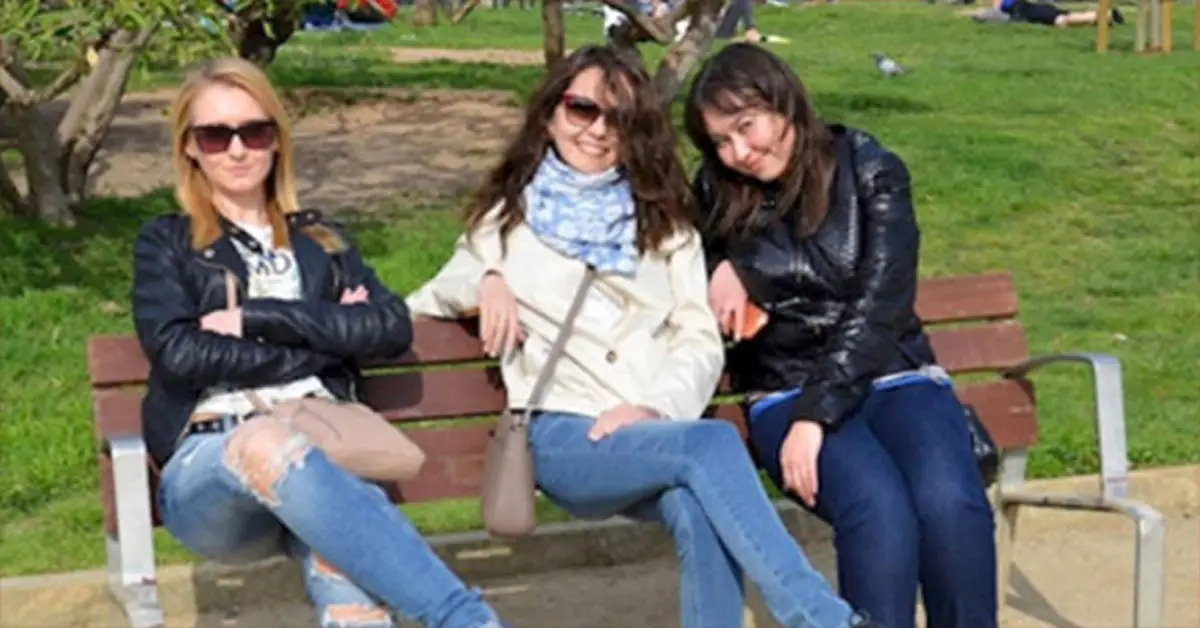Sometimes, the toughest riddles are those hiding in plain sight. They stare right back at you, just waiting to be noticed. If you enjoy puzzles, take a look at the one below. Puzzles are popular because they boost mental skills, enhance memory, and improve problem-solving abilities. They also provide a break from daily stress and offer a sense of accomplishment.
Let’s dive into this intriguing puzzle. Take a close look at the photo of the three ladies sitting on a bench. At first glance, nothing seems unusual. They appear to be casually seated, enjoying a moment together. Two of the ladies are seated with their legs crossed, a common and comfortable position. But there’s something off. The issue is right in front of you, yet many struggle to see it.

The brain often looks for hidden signs rather than viewing the whole picture. This tendency can make simple things seem more complex. Try starting small and taking in the entire scene at once. This approach can offer valuable life lessons too. When faced with obstacles, try to recondition your mind to approach them from a simpler perspective. This might be the key you need.
Returning to our puzzle, examine the image closely. Focus on the details, but also step back to view the entire scene. What do you notice about the bench the ladies are sitting on? Look at their seating arrangement, the position of their legs, and the bench itself. Something doesn’t quite add up.
Have you figured it out yet? If not, let’s delve a bit deeper. Look at the space beneath the bench and the position of the ladies’ legs relative to the ground. The clue is in the foundation, or rather, the lack of it. The ladies appear to be suspended in mid-air. That’s right – the bench has no legs. They are seemingly floating, defying the laws of gravity.
This visual trick plays on our expectations. We see people sitting and naturally assume there must be a solid support structure beneath them. By omitting the legs of the bench, the image challenges our perception and highlights how our brains fill in gaps based on prior knowledge and assumptions.
The puzzle serves as a reminder of the importance of perspective and observation. In life, as in puzzles, the solution is often simpler than it seems. We tend to overcomplicate things by looking for complex explanations when the answer might be straightforward.
Puzzles like this one encourage us to slow down and examine our surroundings with fresh eyes. They teach us to question our assumptions and consider alternative viewpoints. This can be a valuable skill not just in solving puzzles, but in addressing everyday challenges.

So, the next time you encounter a problem that seems unsolvable, remember the floating bench puzzle. Take a step back, view the situation from a different angle, and you might just find that the solution was right in front of you all along. Embrace the simplicity, and let it guide you to clarity and resolution.


